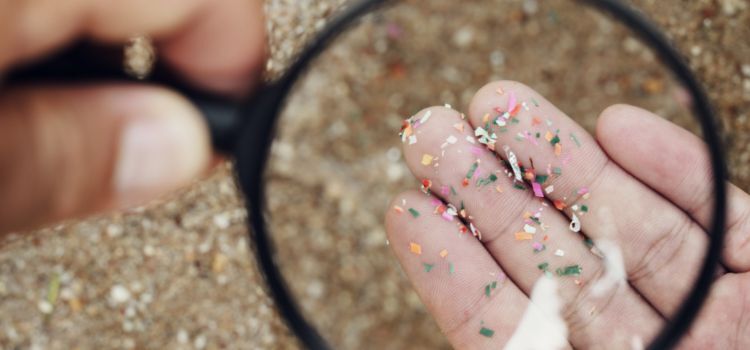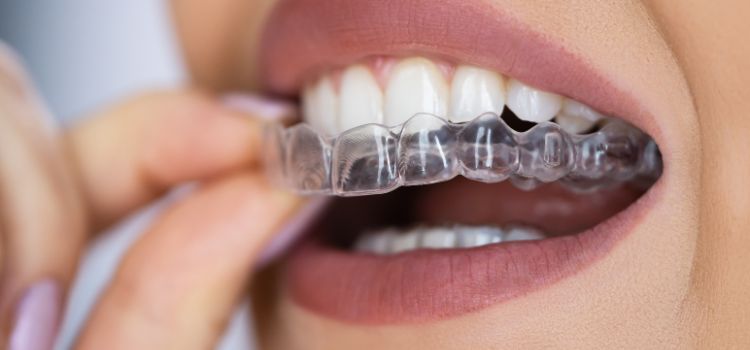Night Guard Microplastics Risk
8th Mar 2025

Your dentist recently told you that you grind your teeth and recommended a night guard to protect your smile. While you understand the benefits, the idea of having plastic in your mouth all night might feel unsettling. You’re not alone—many people share concerns about whether night guards could expose them to microplastics or other harmful substances.
This blog is here to address those concerns. We’ll explore the potential risks of microplastics, explain what night guards are made of, and guide you toward safe, reliable options. By the end, you’ll have the information you need to feel confident about protecting your teeth without compromising your health.
Understanding Microplastics and Their Impact

What Are Microplastics?
Microplastics are tiny plastic particles that result from the breakdown of larger plastic items or are intentionally created for use in products like cosmetics or packaging. They’re typically less than 5 millimeters in size, and while they might seem insignificant, they can easily enter our bodies through food, water, or even the air we breathe.
Why Are Microplastics a Concern?
The potential health risks of microplastics are a growing concern. Researchers suggest that inhaling or ingesting microplastics over time could cause inflammation or other health problems, though the long-term effects are still unclear. This raises understandable worries, especially about products like night guards that are used daily. (source: Microplastics Inhalation and Their Effects on Human Health, 2022)
Health Risks of Microplastics from Night Guards
What Does the Research Say?
Studies on microplastics are still emerging, but here’s what we know so far:
A study published in Environmental Science & Technology analyzing data from over 3,600 samples found that people may consume between 39,000 and 52,000 microplastic particles each year, depending on their age and sex. This highlights how common microplastic exposure has become. (source: Human Consumption of Microplastics)
Microplastic exposure can harm biological systems by causing oxidative stress, inflammation, and the movement of particles within the body. Since the immune system cannot fully remove synthetic particles, this may lead to chronic inflammation and an increased risk of diseases like cancer (source: Environmental exposure to microplastics: An overview on possible human health effects).
Dental devices, like clear orthodontic aligners, made from thermoplastic materials, are increasingly popular but may release microplastics (MPs) due to environmental and mechanical degradation. Prolonged wear, grinding, and low-quality materials may increase the likelihood of small particles breaking off. (source: https://pubmed.ncbi.nlm.nih.gov/36603638/)
What Are Night Guards Made Of?
These materials are chosen for their safety, durability, and comfort, but concerns about plastic exposure can arise, especially with prolonged use. Night guards are typically made from materials like:
Acrylic: A hard, durable plastic often used in dental appliances.
EVA (Ethylene Vinyl Acetate): A softer, more flexible material commonly found in sports mouthguards.
Thermoplastics: Materials that soften when heated to create a custom fit.
Note: Custom night guards, especially those made from high-quality materials, are designed to minimize these risks. They undergo rigorous safety testing to ensure they are non-toxic and safe for prolonged use.
Do Night Guards Release Microplastics?
The risk of microplastic release depends on factors like:
Wear and Tear: Over time, grinding can cause small particles to shed.
Heat and Saliva: Night guards exposed to heat or saliva may break down faster.
Material Quality: Cheaper, over-the-counter guards may be more prone to degradation.
Note: Whether these materials release microplastics is still being debated and needs more research to fully understand.
Should You Be Worried?
For most people, the benefits of wearing a night guard outweigh the potential risks of microplastics. Night guards protect against bruxism (teeth grinding), which can lead to:
- Worn enamel
- Jaw pain
- Cracked teeth
If you’re still concerned, choosing a high-quality, custom-fit night guard from a trusted provider can help reduce any potential risks.
Minimizing Your Risk
To reduce exposure to microplastics:
- Choose BPA-Free Options: Ensure your night guard is made from non-toxic, high-quality materials.
- Replace Worn Night Guards: Regularly inspect your night guard for signs of wear and replace it as needed.
- Clean It Properly: Rinse your night guard with lukewarm water and a non-abrasive cleanser to prevent unnecessary breakdown.
Related Article:
Choosing a Safe Night Guard

A night guard should be safe, comfortable, and durable since it stays in your mouth for hours every night. Here’s what to look for:
- BPA-Free & Non-Toxic Materials – Ensure it’s made from medical-grade, BPA-free materials for safe, long-term use.
- Custom Fit for Comfort – A properly fitted night guard feels better and lasts longer, reducing wear and tear.
- Lab-Tested for Safety – Choose one that meets high safety and quality standards.
- Affordable Quality – Custom-fit night guards don’t have to be expensive—some options provide the same quality at a lower price.
- Satisfaction Guarantee – Look for a hassle-free return policy in case it doesn’t fit right.
By choosing a high-quality night guard, you can protect your teeth with confidence.

- Most Popular
- Hard Outside, Soft Inside
- 2MM Thick
- Moderate / Heavy

- Most Durable
- Hard Materials
- 1.5MM Thick
- Heavy / Severe

- For Day Time Use
- Thin, Barely Visible
- 1MM Thick
- Light / Moderate

- For Clenching
- Flexible & Soft
- 1.5MM Thick
- Light / Moderate
Alternatives to Night Guard for Teeth Grinding: Microplastic-Free Options
Botox for Teeth Grinding
Botox injections can relax the muscles in your jaw, which may help stop grinding. It’s a more modern option to consider.
Jaw Exercises and Physical Therapy
Doing exercises or working with a physical therapist can strengthen and relax your jaw muscles, reducing clenching and grinding.
Lifestyle Changes
Cutting back on caffeine and alcohol, especially before bedtime, can help reduce grinding. Managing your sleep schedule can also make a big difference.
FAQs on Night Guards and Microplastics
1. Do night guards release microplastics?
Night guards are designed to be safe, but like any plastic product, low-quality or heavily worn guards may release tiny particles over time. Choosing a custom-fit, high-quality night guard made from BPA-free materials significantly reduces this risk.
2. How can I tell if my night guard is safe?
Look for night guards made from medical-grade materials, labeled as BPA-free, and manufactured by a reputable provider. Ensure they are custom-fit to minimize unnecessary wear and tear, which can lead to particle release.
3. How often should I replace my night guard?
The lifespan of a night guard depends on usage and material quality. Custom-made guards tend to last longer, but it’s essential to replace your guard if it shows signs of wear, cracking, or rough surfaces. (See related article: How Long Does A Night Guard Last?)
4. Are there eco-friendly or non-toxic night guard options?
Some providers offer night guards made from sustainable or more environmentally friendly materials. Prioritizing non-toxic, BPA-free options can help ensure safety and peace of mind.
5. What should I do if I’m worried about microplastics?
Choose a trusted provider for a high-quality, custom-fit night guard. Regularly check for signs of wear and follow proper cleaning practices to extend its lifespan and keep it safe to use. (See related article: How to Clean Your Night Guard)
Conclusion
Wearing a night guard is an essential step in protecting your teeth from the damaging effects of bruxism (teeth grinding). While concerns about microplastics are valid, understanding the materials and choosing a high-quality, custom-fit night guard can significantly minimize any potential risks.
At Pro Teeth Guard, we prioritize your health and peace of mind by offering BPA-free, medical-grade night guards that are both safe and effective. With our 60-day 110% Money Back Satisfaction Guarantee, you can try your night guard risk-free, knowing that your comfort and satisfaction are our top priorities.

- Most Popular
- Hard Outside, Soft Inside
- 2MM Thick
- Moderate / Heavy

- Most Durable
- Hard Materials
- 1.5MM Thick
- Heavy / Severe

- For Day Time Use
- Thin, Barely Visible
- 1MM Thick
- Light / Moderate

- For Clenching
- Flexible & Soft
- 1.5MM Thick
- Light / Moderate
